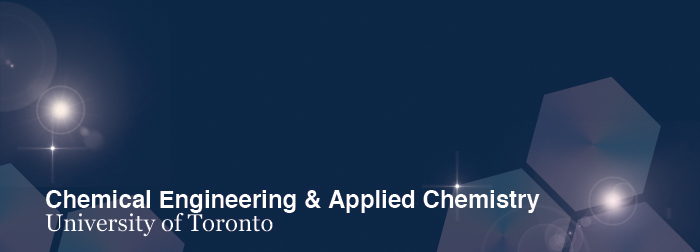

MARY LIDSTROM
University of Washington
BIOCONVERSION OF METHANE BY ANAEROBIC METHANOTROPHIC BACTERIA
The long-term national strategy for sustainable energy requires an inexpensive, abundant, and renewable fuel feedstock with the potential to replace oil in supplying energy and chemical needs. Methane has become a focus of interest in this regard. As the major component of natural gas, methane is inexpensive and abundant, but in the future it is also renewable due to its production from sewage treatment plants, landfills, etc. as biogas. One approach to utilizing methane is bioconversion by bacteria. Methane-utilizing bacteria, or methanotrophs, have the potential to impact our energy future as a platform for generating fuels and chemicals from a renewable feedstock. In this seminar, I will discuss a project to create a bioprocess for converting methane to a diesel-like product. In addition, I will highlight gaps in our fundamental knowledge that must be filled in order to reach the full promise of bioconversion of methane by methanotrophs.
Date/Time |
Location 200 College Street Wallberg Building Room 116 |
 MARY LIDSTROM is is the Vice Provost for Research, a Professor in Chemical Engineering and Microbiology and holds the Frank Jungers Chair of Engineering at the University of Washington. She served as Vice Provost for Research from 2005 to October of 2010, served as Interim Provost for the 2010/11 academic year, and then returned to the Office of Research as Vice Provost.
MARY LIDSTROM is is the Vice Provost for Research, a Professor in Chemical Engineering and Microbiology and holds the Frank Jungers Chair of Engineering at the University of Washington. She served as Vice Provost for Research from 2005 to October of 2010, served as Interim Provost for the 2010/11 academic year, and then returned to the Office of Research as Vice Provost.
She received a B.S. in Microbiology from Oregon State University, and a M.Sc. and Ph.D. in Bacteriology from the University of Wisconsin. Dr. Lidstrom conducted postdoctoral work as a Leverhulme Fellow in Microbiology at the University of Sheffield, and also held an academic appointment in Environmental Engineering Science at the California Institute of Technology from 1987-1996.
Research in Professor Lidstrom's laboratory is focused on bacteria that grow on one-carbon compounds such as methane. Methane is an important greenhouse gas and is also the main component of natural gas. Applications of her research include green production of chemicals, including biofuels, from natural gas, and mitigation of methane as a greenhouse gas.
Professor Lidstrom has over 220 peer-reviewed publications focused on various aspects of methylotrophic bacteria, including a number of major reviews.
Professor Lidstrom has a long history of carrying out interdisciplinary education and research at the engineering/biology interface, and has been honored by the National Science Foundation, Howard Hughes Medical Institute, the American Association for the Advancement of Science, the American Academy of Microbiology, and the American Society for Microbiology for her outstanding achievements. She is the 2013 winner of the ASM Procter and Gamble Award in Applied and Environmental Microbiology and in 2013 was also elected to the National Academy of Sciences. In addition, she oversees the UW Genomics Outreach to Minorities program and sits on the external board at Pacific Northwest National Laboratory.
| For more info about this series: www.chem-eng.utoronto.ca |
Websites of Interest
- University of Toronto
- Faculty of Applied Science & Engineering
- Department of Chemical Engineering & Applied Chemistry
